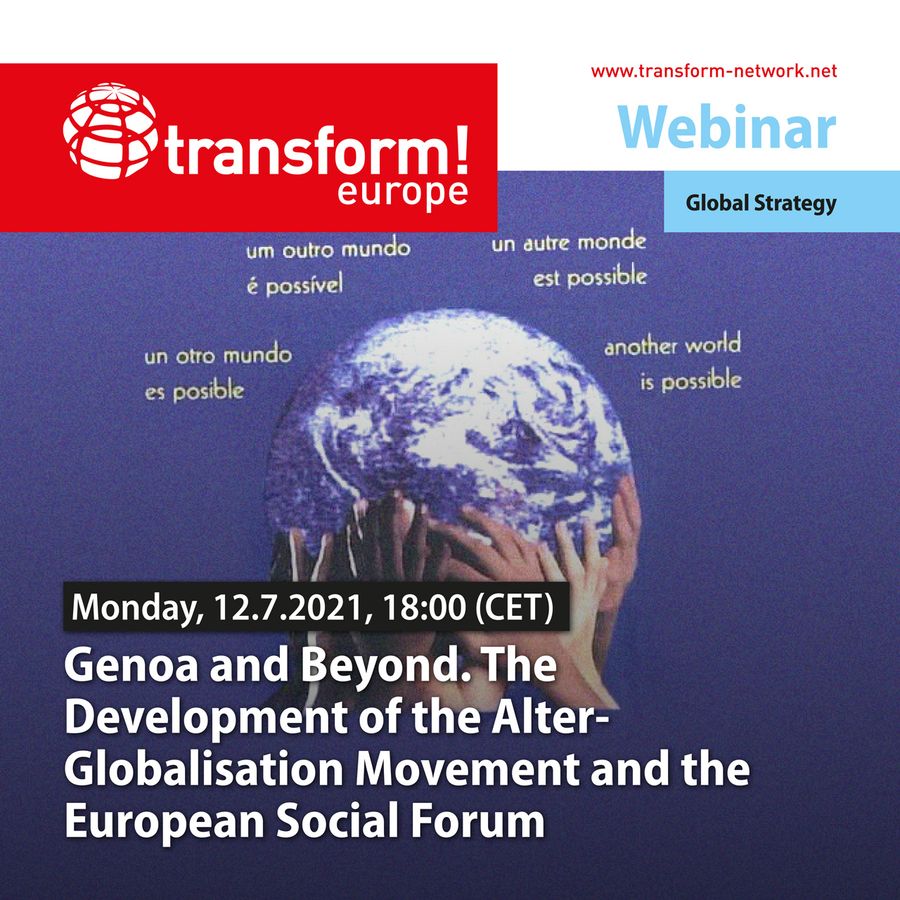On the occasion of the anniversary of the 2001 Genoa protests, this webinar focuses on the political significance of the European Social Forums and their strategies but also their limitations, as well as their impact on left parties all across Europe. Watch the full recording.
12 July 2021
6:00 pm (CET)
Speakers:
- Fabio Amato, former Young Communists spokesperson
- Fausto Bertinotti, former secretary of the Rifondazione Comunista and former President of the Party of European Left
- Raffaella Bollini, former spokesperson of the Genoa Social Forum
- Yiannis Bournous, SYRIZA
- Marga Ferré, Co-president of transform! europe
- Gabriele Zimmer, DIE LINKE, former chair of the GUE/NGL group in the European Parliament
Moderation:
- Roberto Morea, Transform Italy
- Cornelia Hildebrandt, Co-president of transform! europe
Twenty years ago, in July 2001, 23-year-old protester Carlo Giuliani was shot dead by a policeman in the course of the demonstrations against the G8 Summit in Genoa. This summit went down in history for the enormous scale of police brutality, exerted not solely in the streets and at Piazza Alimonda, where Giuliani was killed. Protesters sleeping in the Armando Diaz School became its victims as well along with those tortured at the Bolzaneto detention facility.
The demonstrations were directed against neoliberal globalisation, against the policy of the newly founded World Trade Organization (WTO) acting in the interest of global capital, against the deregulation of the financial markets that has endangered the livelihood of millions of people, particularly in the Global South.
The G8 (and G20) protest movement – the Alter-Globalisation Movement – now can look back on a 20-year history. It made possible new forms of organising: Inspired by the World Social Forums in Latin America, the European Social Forums (ESF) have been cultivated as spaces for alternative thinking and practices. Inspired and supported by the ESF new anti-capitalist movements emerged throughout Europe, with major impact also on party politics. These movements ultimately led to new forms of cooperation between left parties in Europe and to the formation of the Party of the European Left.
